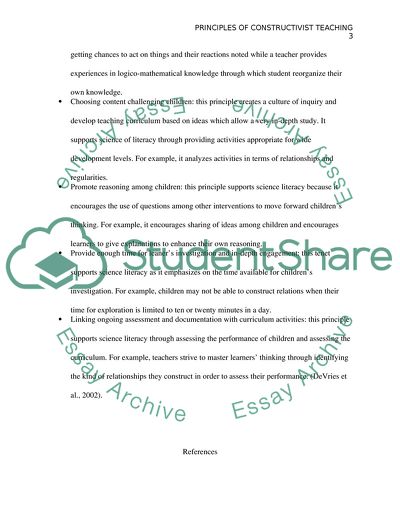Principles of Constructivist Teaching Essay Example | Topics and Well Written Essays - 250 words. Retrieved from https://studentshare.org/education/1613465-teaching
Principles of Constructivist Teaching Essay Example | Topics and Well Written Essays - 250 Words. https://studentshare.org/education/1613465-teaching.


